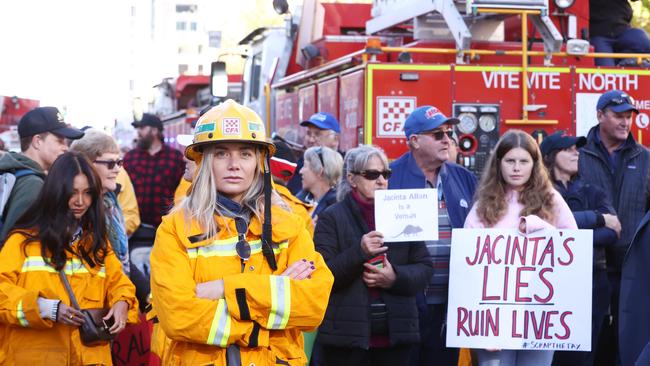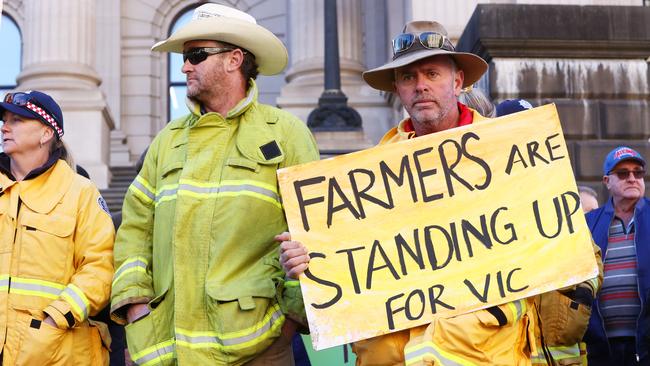MAV legal advice: Councils legally ‘obliged’ to collect emergency services tax
Legal advice obtained by the Municipal Association of Victoria has found councils have no choice but to collect the state government’s new emergency services tax.

Local councils have no choice but to collect the Allan government’s new emergency services volunteer fund tax, based on legal advice sought by the Municipal Association of Victoria.
The MAV’s state council has opposed its members becoming the government’s tax collector, but Maddocks lawyers has advised they “will be obliged to collect the levy (tax)”, once it comes into effect on July 1.
“Although a council is not exposed to a penalty for failing to perform its duty, the Victorian government could obtain an order in the nature of Mandamus (a court order) to compel a council to perform its legislative duty,” Maddocks advised.
“In any event, the Victorian government has a number of extra-legal options available to it to punish a council that does not collect the levy.”
Councils will also have to pass on a proportion of the tax, even if individual ratepayers refuse to pay.
“If a ratepayer pays less than the aggregate of a council’s rates and charges and the levy, a council must proportionally allocate some of the amount paid towards the levy.
“This is so, irrespective of whether the ratepayer has expressly indicated that they do not wish to pay any part of the levy (tax).”
As an example, a farmer who refused to pay the $3000 in tax on top of $7000 in rates and municipal charges, would short-change the council.
Under this scenario, the council would have to hand over $2100 (70 per cent of the $3000 tax) to the Victorian Government, leaving it with $4900 (70 per cent of its $7000 in rates and charges bill).
Councils have also been barred from collecting the tax through a separate invoice.

Maddocks advised the tax “must appear” on a council’s rates notice.
“That said, it is open to a council to create a very distinct part of its rates notice devoted to the levy.
“Equally, a council could make provision for the levy (tax) on a separate page of its rates notice, as long as it could be said that both pages constituted a single rates notice.
“If there is an error in the calculation of the levy, it is the relevant council responsible for correcting the error (and is) liable for its correction.”
“It must withdraw the assessment notice previously given and give the ratepayer another assessment notice.”
Ratepayers who refuse to pay the tax are also at risk of paying penalty interest of 10 per cent per annum on the unpaid amount.
MAV president Jennifer Anderson said the MAV’s position remained that the tax “should be collected by the State Revenue Office, not councils”.
“With legislation now passed, we are committed to working with the state government to ensure funding for councils to administer the levy is adequate,” she said.
“The MAV remains concerned about the cost shock the ESVF (tax) will have on residents already struggling with the cost of living – particularly our primary producers and farmers.
“We will be monitoring the impact the ESVF has on the overall pool of rates collected by councils to deliver services to their local communities. If the higher ESVF leads to an overall decrease in rates collected, this will have a significant impact on the financial sustainability of councils – particularly rural councils.”
Rupanyup grain grower Andrew Weidemann, who helped organise recent protests against the tax, said whatever the legal advice was councils and communities would continue to fight the tax.
He said they would be taking their campaign against the tax right up to the next election.
“They’re (the government) putting themselves in a position of not being re-elected,” Mr Weidemann said.




